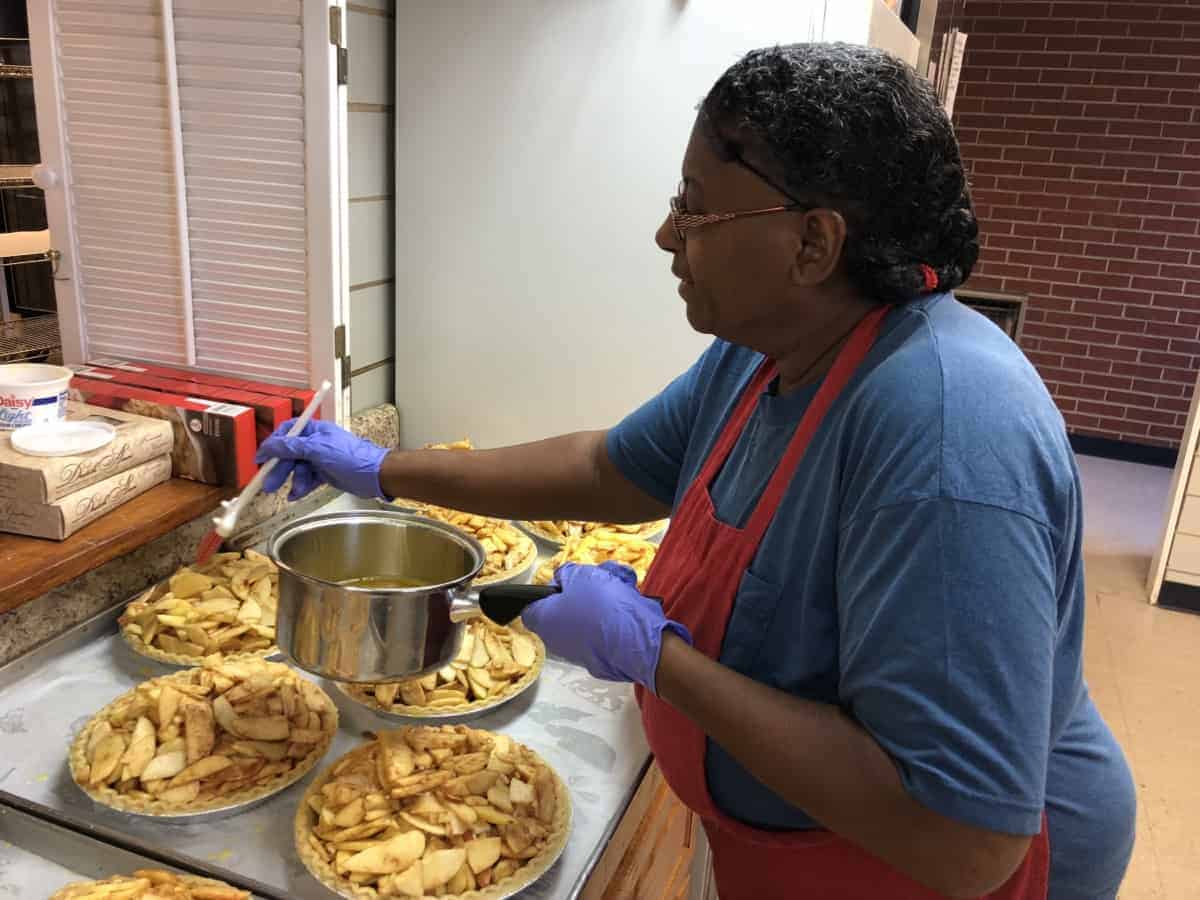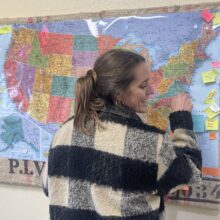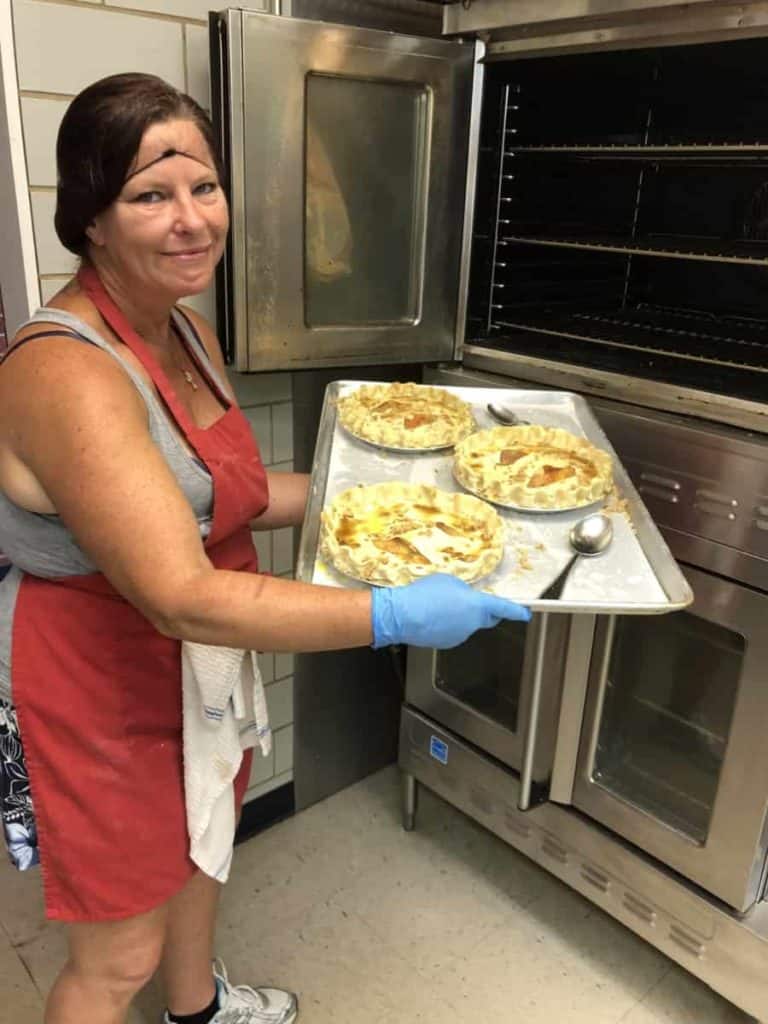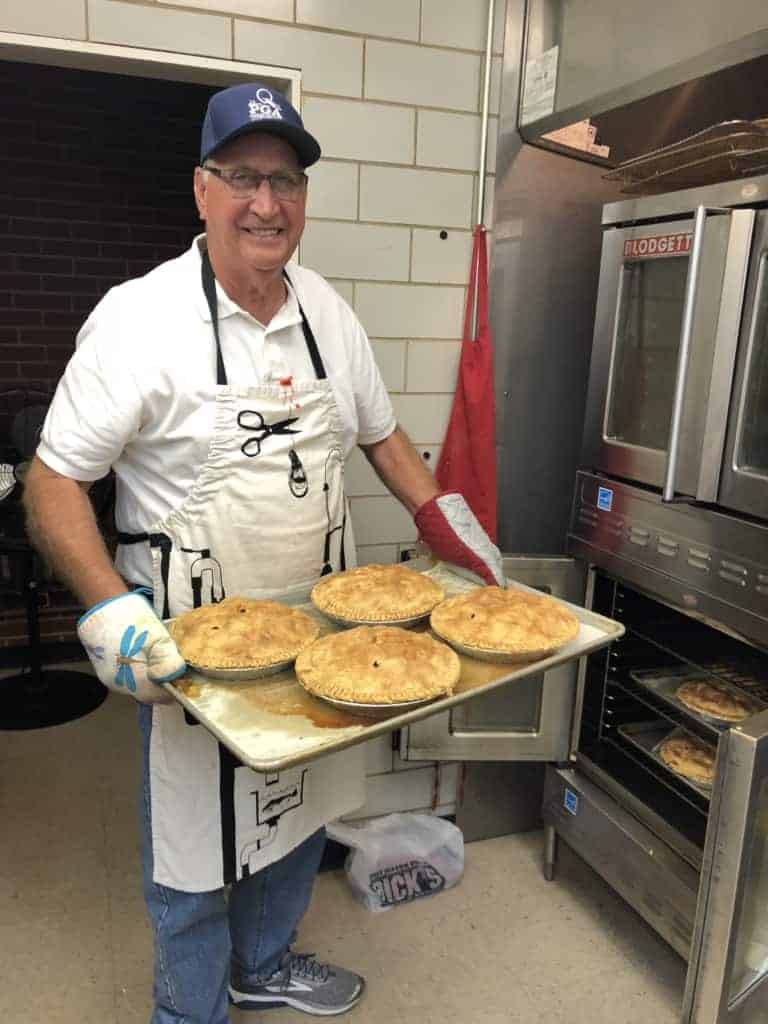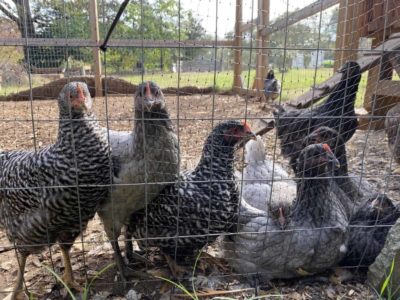This is the second piece in a series on the intersections of faith and food. Read the first piece here.
Every week from April to October, you can find members of St. Matthews United Methodist Church at five different farmer’s markets behind tables filled with pies, sweetbreads, cakes, and loafs of eight different flavors of sourdough. If the professional presentation and sweet aroma of these baked goods doesn’t lure you in — be sure the people of Open Hearts Bakery will.
In August 2019, Open Hearts Bakery celebrated its 10th anniversary serving the people of Morganton and its surrounding communities. It all began with a reverend and church member who had a gift for baking and a little lucky lottery money.
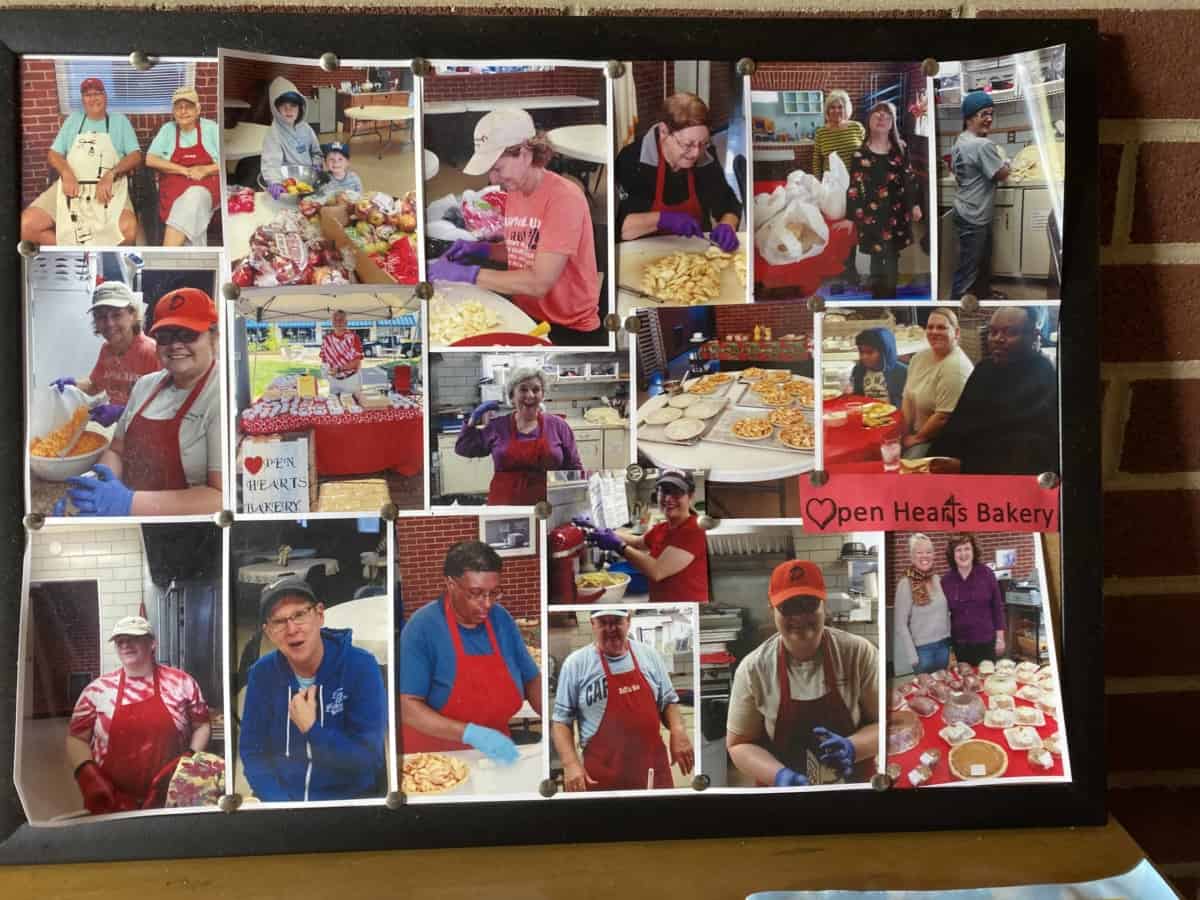

Baking up a food ministry
Allen Boliek, who was reverend at the time, dreamt of expanding church property to serve the community in different ways. A church member who ran a bakery her whole life suggested they raise money for the land payment by selling baked goods. And, a family who attended service had just won the lottery and donated a portion of the funds to the church. With the guidance of the retired baker, Bullock, and extra money the church had just received to purchase ovens, pots, pans, and recipes, the Open Hearts Bakery was born.
The campus expansion never came to fruition, but the bakery grew and evolved over the years, as did the mission. In the fifth year of the bakery, church members were introduced to the idea of hiring staff. With a congregation of 70 on a popular Sunday, dedicated volunteers were the literal bread and butter of bakery operations. The pastor at the time, Heather Kilbourne, had a background in nonprofits and knew the way to sustain and help the community in a more permanent way was to hire staff.
Through a book study with Toxic Charity, volunteers began to see how the future of the bakery could change people’s lives. Program coordinator and church member Madelyn Russ said the book “led us to start thinking about when we help someone this month, if things don’t change, they are going to need the same help next month.” Kilbourne brought in outside consultants, and with their help, the bakery adopted a new vision.
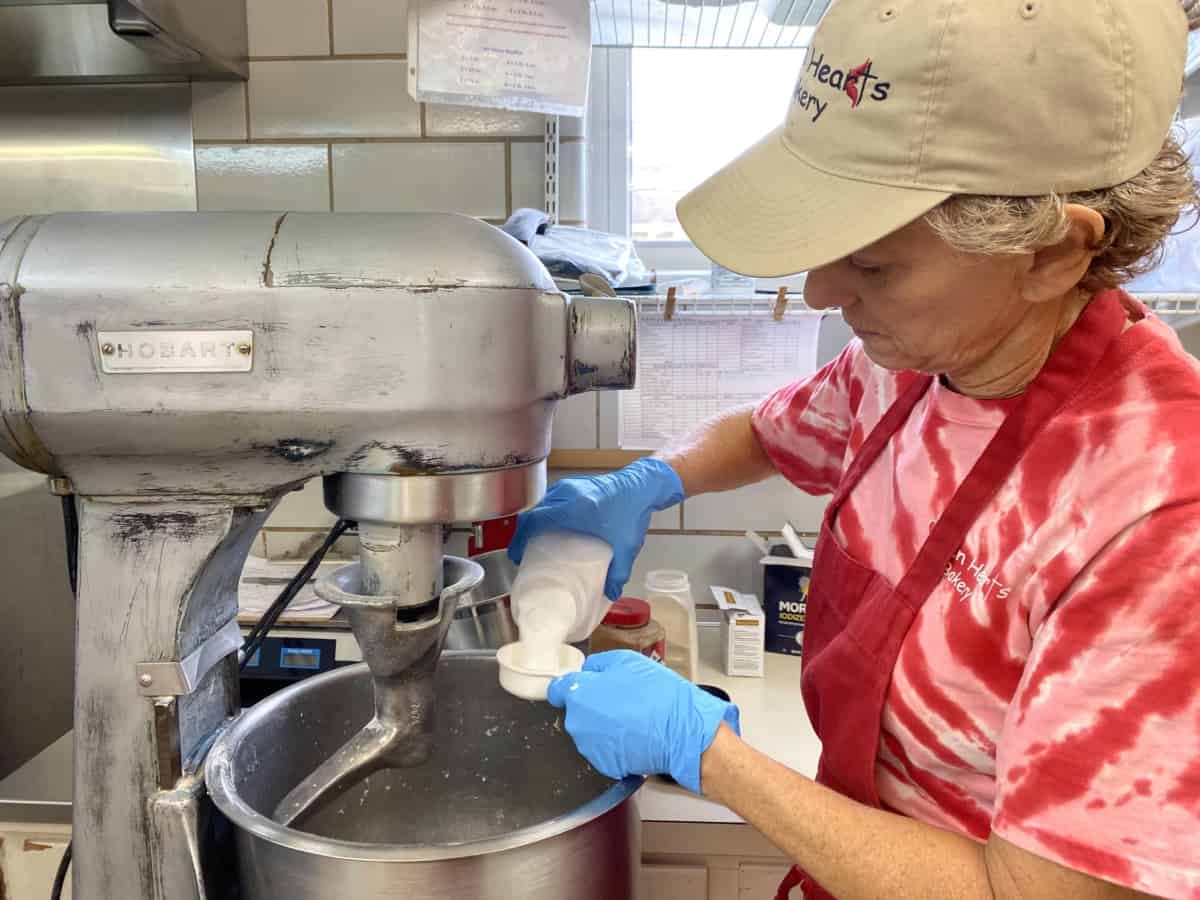

Russ continues, “and so our two main missions started at that time and continued to be: We hire people that are either economically challenged and/or employment challenged, which go hand-in-hand. And whatever’s left over at the end of the year goes directly back into the community.”
Employment challenges can be many things at Open Hearts Bakery. They do not limit what it means, but say it can be anyone who has had difficulty finding or keeping a job. Current St. Matthews UMC Reverend L. Elaine Hall believes part of what they are doing is tough because they are “both a bakery and sort of a social service.”
What does the bakery look like with paid staff?
Over the last five years, as with anything, there were ups and downs. Some years, the bakery had naturally talented bakers. Other times, there was more of a learning curve. The bakery is now able to hire four to five staff members annually who work anywhere from 15 to 20 hours a week during baking season (April to October). They also connected with Resourceful Communities to access a grant which allows them to hire a year round on-site manager.
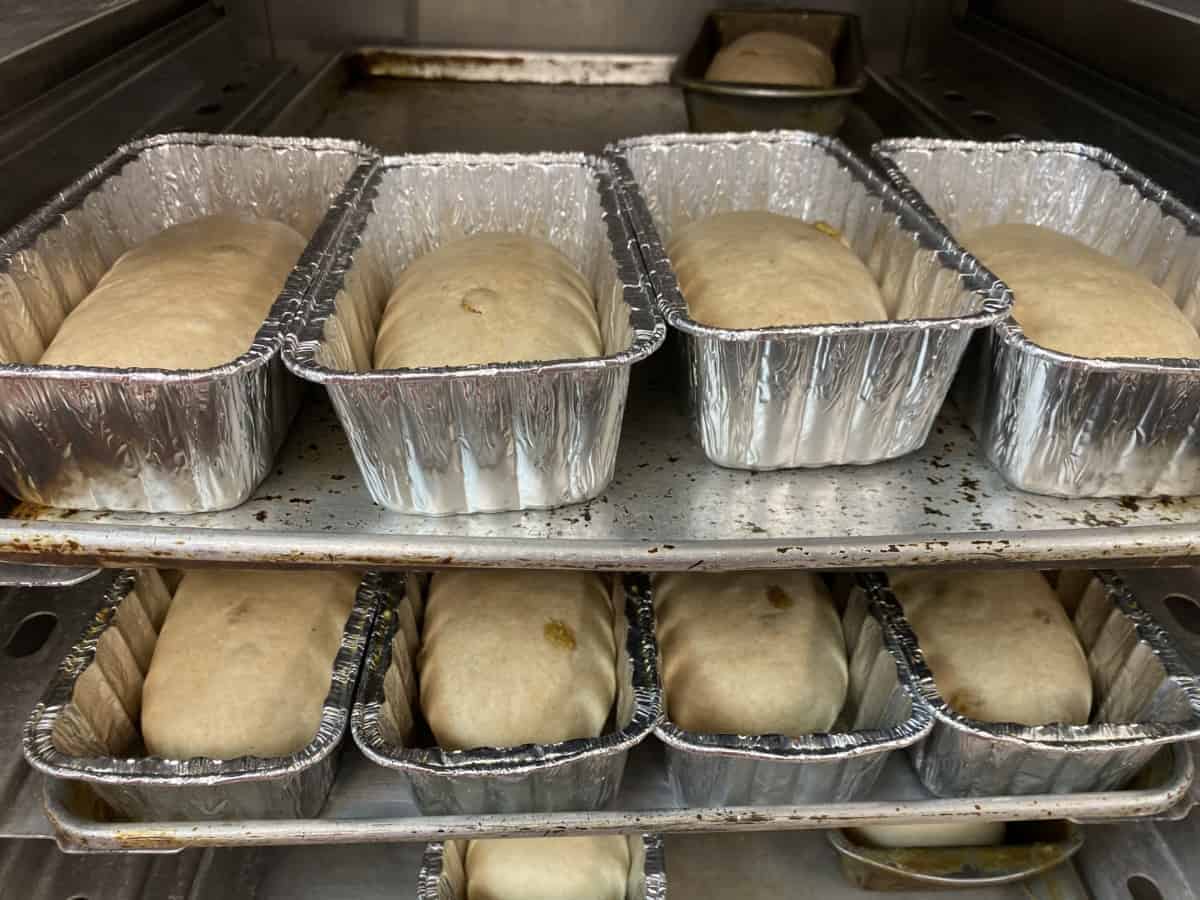

The most baking happens on Thursdays during the summertime. On-site manager Jenna Cole arrives at 6 a.m. and starts tweaking the production schedule. Not only does the bakery sell at farmers markets, but they have wholesale orders that come in weekly. Cole says jokingly, “I use a lot of whiteout.”
She begins kitchen prep while volunteers and employees start trickling in. Each baker is on the schedule with a recipe next to their name. They gather ingredients, find separate spaces in the kitchen, and get to baking.
“We all just try and work together and try and coordinate, staying on top of clean up … we let the baked goods get cooled off, and do any prep work that’s needed,” said Cole.
Prep work can include cake decorating, apple pealing, picking peppers from the garden, and much more. Things need to be wrapped, labelled, priced, and sorted. Then, more volunteers come in for the bread baking around 4 to 5 p.m. Some days, the kitchen is in use from 6 a.m. to midnight, and all this work doesn’t include getting things to market.
Letting the dough rise
Some of the five farmers markets are twice a week, and can be located more than 38 miles from the church. With loading, driving, set-up, selling, and breakdown at these markets, a team of people is responsible. Selling at the markets is strictly volunteer-based, and it is encouraged that the bakers go at least once to see their product move into the hands of an excited customer.


It is easy to see how much the bakery has taught the congregation. Madelyn Russ has worked with the bakery from the beginning and reflects, “unless you’ve either been there or worked very closely with people [who are employment challenged], you don’t realize how our society is set up to keep you in poverty.”
After putting in the work and getting to know their employees over the years, St. Matthews UMC is excited about adding affordable housing to their ministry. They are in the early stages of purchasing land adjacent to the church, allowing those in need access to safe, rent-controlled homes.
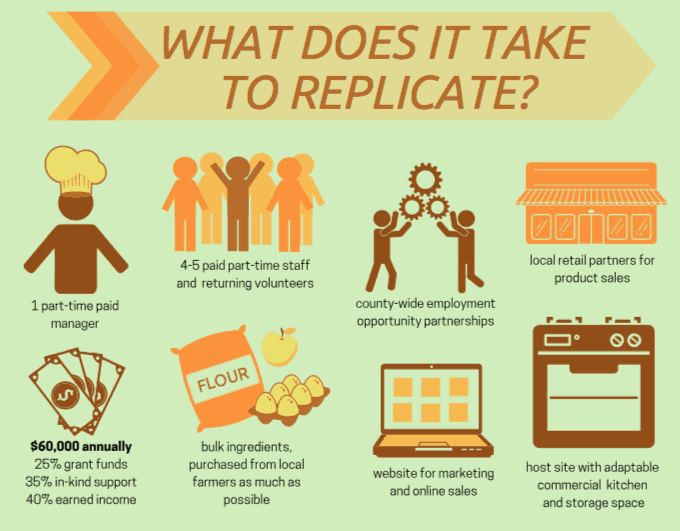

Tommy Russ, a retired educator, has been a member of the church for 50 years, and works both Wednesday and Saturday at farmers markets. On a good summer Saturday, he’ll sell $700 of baked goods, but he says that’s not the best part. He knows his customers and has developed relationships.
“You meet people and learn their story,” he said. “I am able to tell our story, the bakery’s story, and how it has evolved over the years.”
